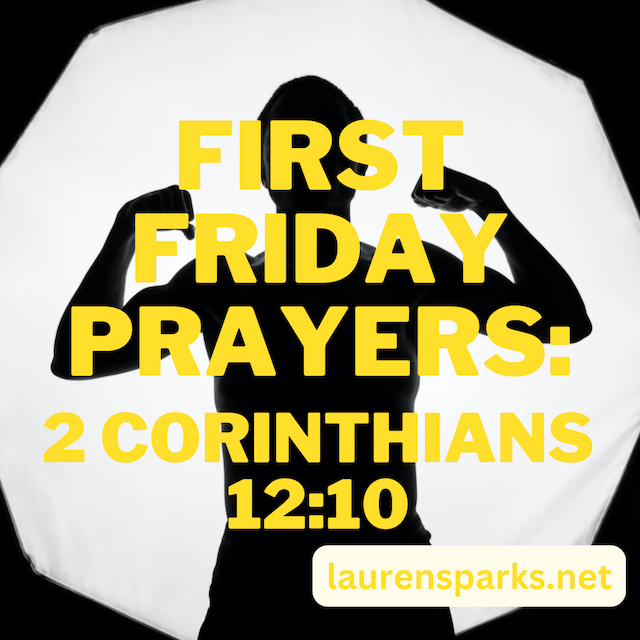End Stigma in the Church: Be Doers, Not Hearers Only

I had the privilege of stumbling onto Katie R Dale’s blog a few months ago. She is a believer living with bipolar disorder who is refreshingly transparent in speaking about her struggles. She is a popular author and speaker and is a fierce advocate for those suffering with mental health issues.
“But be doers of the word, and not hearers only, deceiving yourselves.” James 1:22 (ESV)
Being a doer and not just a hearer of God’s Word yields no room for stigma toward mental health conditions in the church.
We need to talk about the realities of mental illness. And we need to do our part to help end stigma. The more we can do these things, the more we can break down stigmatizing barriers that prevent many from getting the help they truly need.
The Difference Between Sin and Sickness
God designed our minds, bodies, spirits, and souls to work together. They are intertwined, and no part is left unchanged or unaffected by the others.
With the entire picture of a person, you can see them. In light of shortcomings and victories, accomplishments and failures. We all have our flaws and weaknesses.
Character is shaped by conscious choices. That is the difference between accountability for the choice of sin or a mental illness. Mental illness is never a conscious choice, though actions and behaviors may mimic the choice of committing a sin.
The bottom line is that no matter the cause of the behaviors, loving others with the same grace we have been given creates a safe space to help someone get the treatment they need. That treatment may need to be addressed with a pastor, or it may need to be addressed with a trained clinician.
It Depends on the Cause
The person suffering from mental illness is struggling with symptoms of a brain disorder. As one with lived experience, I can attest that we cannot always comprehend it, and can never “will” ourselves out of it. We may be led into sin because of the brain chemistry imbalance. We may hurt ourselves or others because of the sinful state we find ourselves in. But we should not be judged.
After all, God sees and weighs the intents of one’s heart. As an onlooker, why should we take on the impossible role of Judge? We cannot determine whether a person is sinning intentionally? Only when one is willfully sinning, is aware of the sin, and has the insight to recognize it is wrong, only then should we address this sin as the family of God.
We shouldn’t confuse willfully sinful behavior with the mental instability and lack of insight from which someone with a brain disorder behaves. People with mental illnesses do things rashly, out of irritability, striking out and hurting themselves and others. We need to educate the church to distinguish between the two, and do better.
Knowing Better to End Stigma
Those hurting out of a brain chemistry imbalance are sick and need treatment. The last thing they need is to be discriminated against, judged, and called to accountability as if they have sinned. To some degree, they can’t help their behavior.
Mental illness may be something a person is ashamed of. We need to love and encourage them to get treatment and care.
There are some practical ways to encourage a brotherly affection and love toward others. Let’s combat stigma so that it has no chance to fester or grow. Per the golden rule, may we put ourselves in others shoes, and if they don’t “fit”, may we educate ourselves so they do.
Ways to End Stigma
- Talk about mental illness. Be brave and open about your own diagnosis if you have one. If a family member is the one with the illness and is open and okay with it, talk about how you support them in their episodes. Transparency makes an acceptable atmosphere to share our struggles, so others can understand what life is like with mental illness.
- Educate yourself. Read articles and blogs online, check out books from the library. Rent or buy memoirs on mental illness, listen to podcasts. See this list of resources for more info. There are plenty of ways to find out more about brain disorders, and new breakthroughs in research are coming out all the time.
- Be a good neighbor to those with mental illness. Try to start a conversation in a natural way. If they are coherent and cognizant of their moods, be a good friend to them and let them know you’re there for them. Be present and interested in them. You don’t have to agree with them, but acknowledge what they’re saying and validate their feelings and thoughts. If it doesn’t make sense or isn’t true, do not argue with them. Instead, say, “You sound like you’re having a hard time. What do you need right now?” More suggested ways to talk with someone with mental illness can be found here.More Ways
More Ways
- Take it a step further; be a good friend. Ask them about their family and how they’re doing. Ask what you can do to help (if they’re having conflict). If they answer with something practical, by all means, help them. If they ask for something unreasonable or unsuitable, let them know you can’t help them in that way, but you would like to be of help. Then find someone who is more suited to help in the capacity they may need.
- Realize this may be lifelong, but not hopeless. This is common (1 in 5 have a mental health condition, 1 in 20 have a serious brain disorder). There is more help for these conditions than ever before.
- Start a support group. Encourage your loved one struggling to find a mental health support group. There are many across the country and virtually, like Fresh Hope for Mental Health, Grace Alliance, My Quiet Cave, and others.
- To pastors: your church needs to hear from the top. Talk about it in your sermons, or host a Fresh Hope support group or one like it. Many benefit from the openness of those sharing about their struggles. They see that they can find relatable, transparent, down-to-earth human beings. We need to accept our diagnoses and struggles and not act as if we’re perfect.
No Shame, End Stigma, All Support
Stigma is discrimination against those with mental health issues. By treating all others as we would like to be treated and cared for, we are following Jesus.
The road to recovery and away from stigma is paved by the humble support and strength of those who care about the least of these. Do your part and take it one step at a time. Your loved one needs you. The church needs every member to take part. We can’t beat around the bush anymore. Let’s talk about it, and more importantly, let’s do something about mental illness. We can’t afford not to.
 About the author: Author of a memoir about psychiatric hospitalizations and her faith, Katie Dale is no stranger to the storms of serious mental illness. She advocates online at KatieRDale.com for Serious Brain Disorders. She blogs, speaks, and shares her story with others wherever she can. When she’s not doing that, she’s getting creative in her freelance business. She’s mom to one child on earth and one in heaven and wife to her hero in uniform. Katie currently resides in Florida.
About the author: Author of a memoir about psychiatric hospitalizations and her faith, Katie Dale is no stranger to the storms of serious mental illness. She advocates online at KatieRDale.com for Serious Brain Disorders. She blogs, speaks, and shares her story with others wherever she can. When she’s not doing that, she’s getting creative in her freelance business. She’s mom to one child on earth and one in heaven and wife to her hero in uniform. Katie currently resides in Florida.
Link Up Time
Now for this week’s featured post from the link up!
Two bloggers spoke straight into my One Word Focus for the year last week. Paula of Simply Coffee and Jesus with Rest for Our Journey and Michele Morin with Are You Looking for a Way to a Destination Called Peaceful Rest. Thank you ladies for teaching me as you link up with Grace and Truth.

1. Share 1 or 2 of your most recent CHRISTIAN LIVING posts. (No DIY, crafts, recipes, or inappropriate articles.) All links are randomly sorted.
2. Comment on 1 or 2 other links. Grace & Truth linkup encourages community.
3. Every host features one entry from the previous week. To be featured, include this button or link back here on your post (mandatory to be featured, but not to participate).


We encourage you to follow our hosts on their blogs or social media.
MAREE DEE – Embracing the Unexpected
Blog | Facebook | Twitter | Instagram | Pinterest
LAUREN SPARKS
Blog | Facebook | Twitter | Instagram | Pinterest
LISA BURGESS – Lisa notes
Blog | Facebook | Twitter | Instagram | Pinterest
TAMMY KENNINGTON – Restoring hope. Pursuing peace.
Blog | Facebook | Twitter | Instagram | Pinterest
Now Let’s Link Up!
Sharing is caring! If you liked this post, do me the huge honor of using the buttons below to share it to your favorite social media accounts. And if you want to get these essays emailed to you once a week, subscribe! Lastly, my posts may contain affiliate links and I earn from qualifying purchases. If you buy anything from one of these links, I will receive a few pennies to help offset the cost of this website at no additional charge to you. Thank you in advance for your help.
To find some great places where I might be sharing this post, click here.











